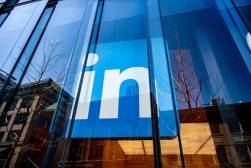Federal bailout: Nevada temporarily abandoning state exchange
Facing more than 1,500 technical glitches, leaders of Nevada’s health insurance exchange voted Tuesday to fire its contractor, Xerox, and move to the federal exchange for one year while it builds another exchange for 2016.
The board of directors for the Silver State Exchange, which serves Nevada’s more than 2.7 million residents, said it had “no confidence” in Xerox to fix the mistakes that have plagued the exchange since open enrollment began last October.
“The current system is intolerable and is not the best we can do,” said Lynn Etkins, the board’s vice chair, according to the Las Vegas Sun.
The next open enrollment period begins on November 15, so state officials were left with few options to get the exchange working in time. For the coming period, users will still use the Nevada Health Link as the entry point for enrolling, but will be directed to the federal exchange.
During that time, the state will open the bidding process to hire a new contractor and create a system based off a working model.
Gov. Brian Sandoval pushed to make Nevada one of the 15 states to run its own exchange, due in part to his opposition to the Affordable Care Act.
“Unfortunately, the board was placed in this position because Xerox has failed to perform its contractual duties,” Sandoval said in a statement. “The Silver State Health Insurance Exchange Board is statutorily charged with deciding the future of Nevada Health Link. The board made the best decision it could under these difficult circumstances.”
Xerox spokeswoman Jennifer Wasmer called the decision “extremely disappointing,” saying the company used its full resources to meet the goals of the exchange. Xerox was awarded a $75 million contract to create the exchange, with $12 million of that already paid out.
The board’s decision perhaps best mirrors the situation in Massachusetts, where state health leaders decided to lean on the federal government’s exchange, which faced its own share of public problems during the initial roll-out, but has since corrected itself.
Oregon announced earlier this month it would abandon its exchange for the federal government’s solution after troubles with Oracle, its primary vendor. Unlike Nevada and Massachusetts, Oregon does not intend to repair or rebuild its exchange, but instead is going to the federal government’s solution for the foreseeable future.






